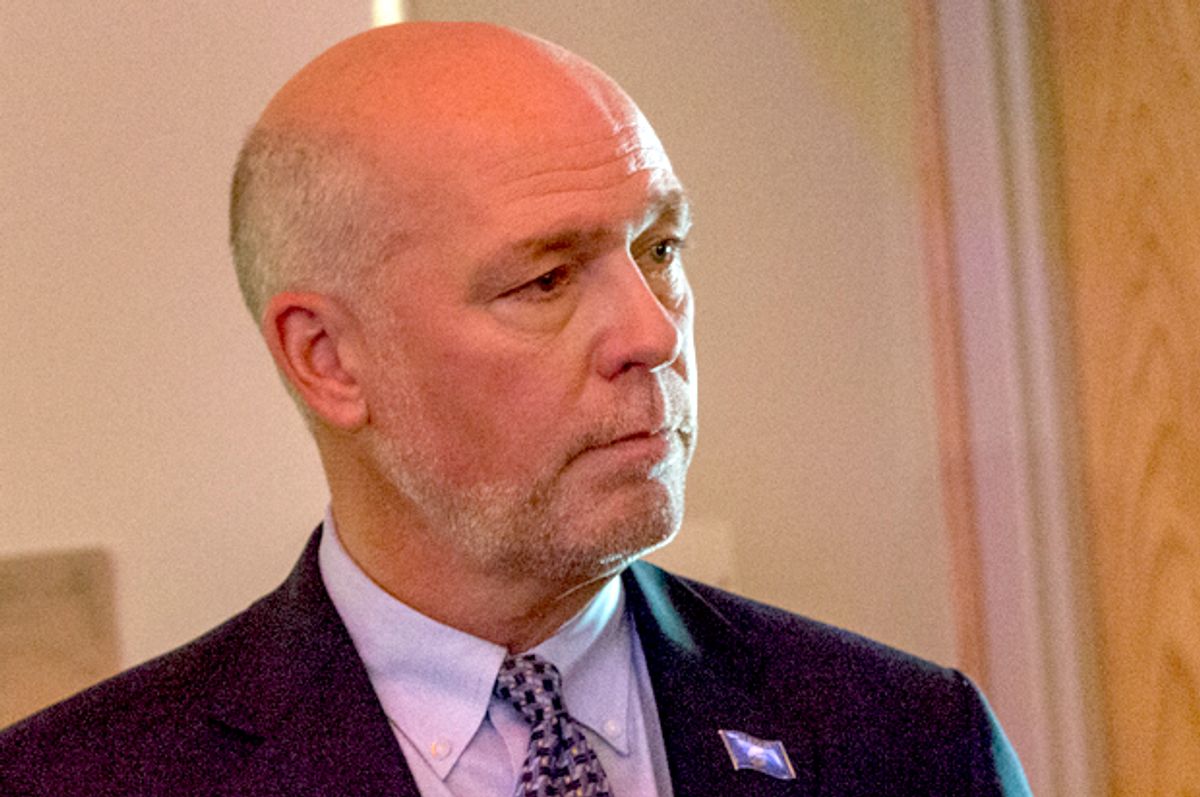When reports came out that the Republican candidate in Montana's congressional race physically attacked a reporter from The Guardian, people were stunned.
They really shouldn't have been.
[salon_video id="14771529"]As many of the local newspapers in Montana have noted, Gianforte had made veiled threats against members of the press in the past. The Billings Gazette reported on a questioner who told Gianforte that "our biggest enemy is the news media," asked how conservatives could "rein in" reporters they disliked and "looked at the Ravalli Republic reporter sitting next to him and raised his hands as if he would like to wring his neck."
Instead of reminding the questioner about the importance of the First Amendment and chiding his implied threat of violence, Gianforte smiled, pointed at the reporter and joked that "it seems like there is more of us than there is of him."
To see how ominous this is, imagine for a moment that the questioner had replaced the word "news media" with simply "your critics" — and, to be fair, he criticized the media precisely because they have been critical of people and ideas that he supports. Would any politician dare respond to an implicit threat of violence against all of their critics that "it seems like there is more of us than there is of him"?
Because hating the "liberal media" is so cliche among Republican circles that moment didn't derail Gianforte's campaign, although the Billings Gazette acknowledged that Gianforte's joke "must now be seen through a much more sinister lens."
The alleged attack on The Guardian's Ben Jacobs was caused by Jacobs' desire to ask questions. Jacobs insisted that Gianforte answer for his support for a bill that could deprive millions of Americans of health insurance, according to all reports. Gianforte's response, captured on audio, said it all: "I’m sick and tired of you guys! The last time you [meaning, The Guardian] came here you did the same thing! Get the hell out of here! Get the hell out of here!"
The root of Gianforte's attack on Jacobs wasn't just one politician and one reporter. It exists within the context of a long history of right-wing attacks on liberal media outlets, tracing all the way back to the 1960s.
President Donald Trump has openly talked about making it easier to sue his media critics. He's incited violence against protesters at his rallies and allegedly wondered to former FBI Director James Comey if reporters who published leaked information should be imprisoned.
Conservatives may not like it that there is another side in our nation's political debate, or that liberals have platforms which allow them to reach millions of people, but that doesn't give them the right to attack their critics' very right to exist.
The fact that they've been doing so for so long, and that it has been normalized, goes a long way toward explaining what happened.



Shares